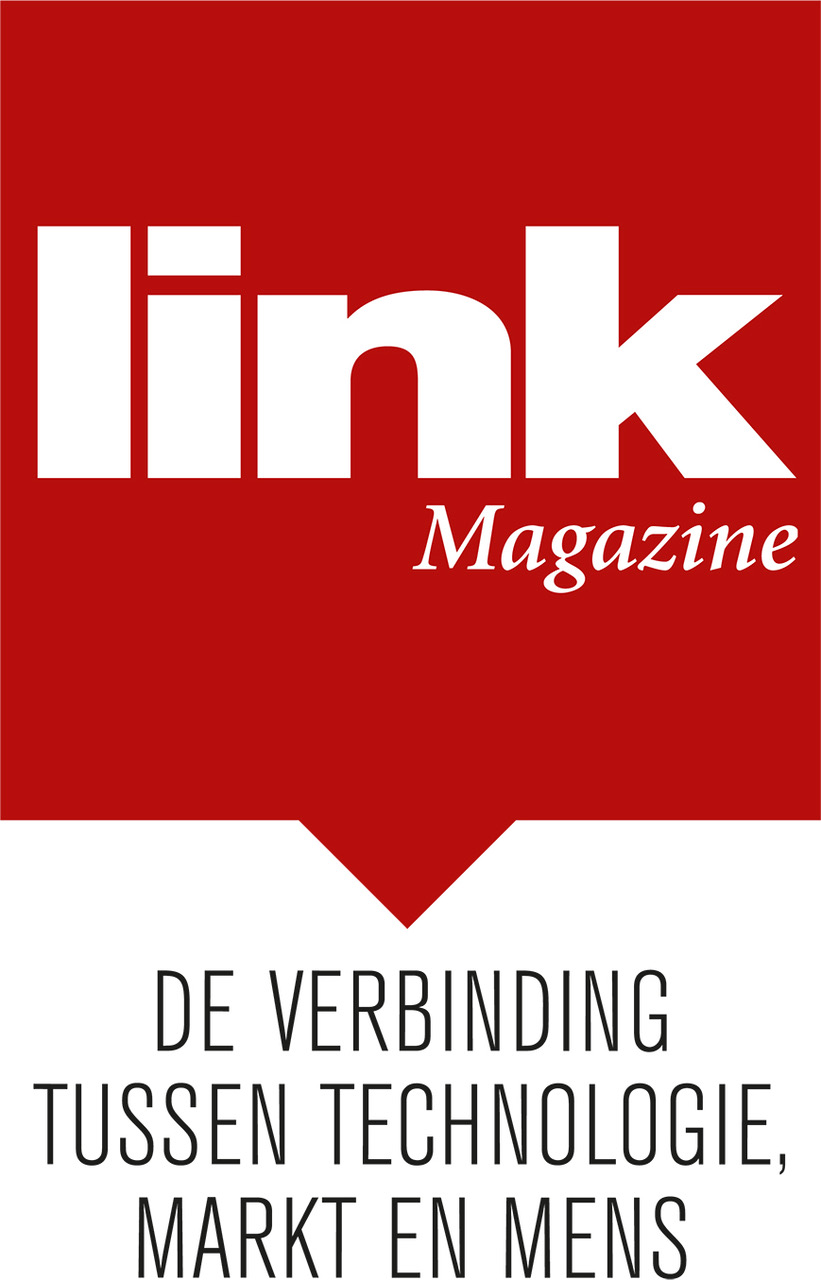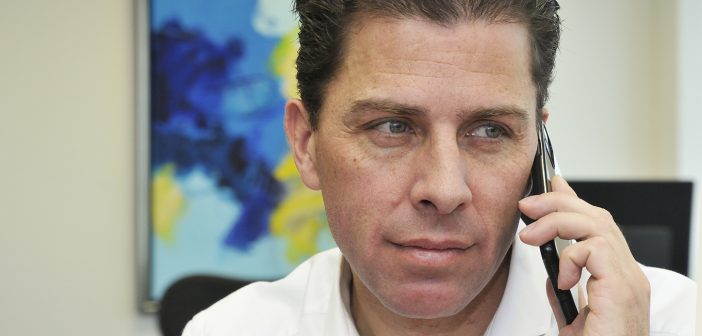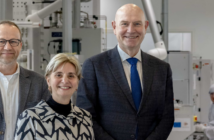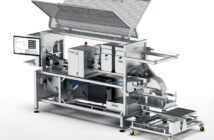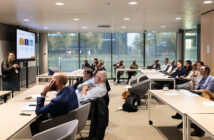In the middle of the corona year, Tjarko Bouman took the helm at NTS. A company that still has a significant part of the One NTS internal integration process ahead of itself. And that operates in a highly international market, while travel is now subject to all kinds of restrictions. Even so, he has already formed – mainly by digital means and by telephone – a ‘fairly complete’ picture of both the internal and the external relationships. ‘Given that we perform extremely high quality work here, it is a bit odd to be approached as a contract manufacturer as soon as it comes to price.’
– ‘You only really get a good impression when you can visit.’
– ‘I am deeply impressed by the professionalism of the workforce.’
– ‘The global account team brings together the client’s knowledge, technical knowledge and management.’
– ‘It is precisely this insight into one’s own financial performance that makes for client focus and entrepreneurship.’
– ‘We want to move further up the chain from build to spec.’
‘A certain conflict between the interests of the group and those of individual companies is actually a good thing’
In December he travelled to Singapore at the invitation of the city-state’s Economic Development Board. NTS employs over 200 people there, both in production and assembly, in a sector that is strategic for Singapore. Hence the invitation which granted him the privilege of not having to self-isolate, although he did have to undergo the necessary tests, follow all kinds of security measures during his stay and observe a strict schedule.
Digital control
It enabled Tjarko Bouman, already more than four months in office then, to finally meet his employees there in person. In August and September, when the restrictions were less severe, he visited the various branches in the Netherlands and the Czech Republic. For now, he can only meet his people in the US and China digitally. ‘Even if you look at eighty photos and videos of a location beforehand, you only really get to know it and get a good impression of it when you can visit it,’ he says during a conversation in his office, held at a responsible distance of one and a half metres. Until now, he has mainly had to manage NTS via Teams and Zoom and maintain contact with clients and suppliers digitally or by telephone. Nevertheless, it appears that he already has a fairly accurate impression of the ups and downs in and around the Eindhoven system supplier, although there are still a few subjects about which he has ‘not yet formed a complete picture’.
Do not renounce origins
‘I am deeply impressed by the professionalism of the workforce and their commitment to the company,’ he says. Promoting mutual cooperation and involvement has been a major goal of the One NTS project in recent years. This is an extensive project that is designed to transform a group of previously independent companies into a single, integrated enterprise. ‘Of course,’ he observed, ‘people still regularly talk about Nebato, Te Strake or one of the other companies that have been merged into the NTS group. That’s not surprising in a company where so many people have been working for a long time. In my first week I already had the pleasure of congratulating someone on his 25th anniversary. This involvement is reflected in the loyalty to the company, but also in the pride with which people talk about this company, in the eagerness to transfer knowledge, to clients but also to schools. As far as I’m concerned, no one has to renounce their origins.’
‘Everyone must be keenly aware of the client’s requirements’
One global account team
‘Outwardly, towards the client, we operate with one global account team in which the client’s knowledge, technical knowledge and management are brought together. That team can be made up of staff working at various branches, both at home and abroad, in Drachten, Eindhoven and Singapore or the US. People who work well together and communicate with the client as one team. But there will always be a certain conflict between the interests of the group and those of the individual companies, and that is actually a good thing. Each company has its own records. Because it is precisely this insight into one’s own financial performance that makes for client focus and entrepreneurship. Otherwise, the companies that make up this group are reduced to departments. It is important, however, that there is open and transparent communication about the reason for keeping work in-house, so that, when it makes sense, the advantages of the group can be utilised in good time.’
All work client-specific
He pronounces the word ‘departments’ with a certain disdain. ‘An OEM is often made up of departments, averse to market contacts and entrepreneurship. But within these large companies, where standardised products are developed and manufactured, it is easier to separate commerce from operations,’ he explains. ‘At NTS, however, all the work is client-specific and everyone, anywhere in the company, must be keenly aware of the client’s requirements. We seek to meet those client requirements from a One NTS perspective. Requirements that may differ at each NTS facility. Basically, our clients expect agility. If our clients change their supply chain strategy, we need to be agile and move with them. However, always from the One NTS point of view. Because the client sees us as a single company.’
Even bigger planning challenge
Before joining NTS, Bouman was managing director of Vanderlande Warehouse Parcel International, a ‘front-end’ position. But if a tender was won or lost, he was well aware of the impact on the back end of the organisation. ‘These were typically large projects that could easily account for 10 percent of annual turnover. If a project was won, all the stops had to be pulled out. Dealing with these strong fluctuations – the proper planning of production capacity and purchasing – is one of the major challenges within an OEM company. But here at NTS, that planning challenge is even greater. Of course, projects are not very likely to make up a significant part of the turnover here. But you are informed at a much later stage, so there is much less time for all the development and production. Because you are supposed to deliver within the client’s schedule.’
Earlier commitment
One of Bouman’s ambitions is to ensure that the client involves NTS at an earlier stage in the process, and he knows that it is an advantage that he has learned about the position of the OEM from the inside. When asked, he says that he has not yet been able to use that advantage in a concrete case – the circumstances of his first six months were ’too unusual’ for that. But he is committed to obtaining the client’s commitment sooner. ‘To reach long-term agreements with the client, about the price and the purchase volume, taking into account developments in the market and design changes that may still follow, and about the risk we take.’
Profitable business model
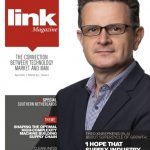
Theo Kneepkens
(KLA) about supercycle of growth: Í hope that supply industry expands its capacity’. Read this edition of link magazine digitally via this link
He also considers his personal commitment necessary because he is ‘surprised…, no not surprised’ by the way many clients treat NTS. ‘Given that we perform extremely high quality work here, it is a bit odd to be approached as a contract manufacturer as soon as it comes to price. Of course we are referred to as “a strategic partner for the long term”, there is intensive cooperation and high-level sharing of technical and market knowledge, and mutual dependence is high. We are asked to be a technology partner that co-develops at our own risk. We can develop IP at our own expense and thereby engineer fantastic modules for the client. But the success of that still depends entirely on the client, on the extent to which they manage to apply that module in a successful product. We would like to move further up the chain from build to spec (development based on the functional specifications, ed.) We want to be involved in the client’s first design phase, so that we can be the sounding board they want us to be, also in a commercial sense. But what kind of business model would be sufficiently profitable for us to do that? That’s a question I want to answer this year.’
Internationally experienced
Tjarko Bouman (50) joined NTS in Eindhoven on 1 August last year as CEO, succeeding Marc Hendrikse. He has no technical background, but extensive experience in the international high-tech industry. After studying business administration at Erasmus University Rotterdam, he held various roles in consulting and management. In his last role at Vanderlande, he was ultimately responsible for the Warehousing and Parcel business in large parts of Europe and Asia, including sales, engineering, completion and delivery of projects, and services & maintenance. That international experience is very useful to the developer and builder of (opto)mechatronic modules that generates 80 percent of its turnover from internationally operating high-tech machine builders. The development work is done mainly in the Netherlands, but production and assembly mostly near the client, in the Netherlands, the Czech Republic, China and Singapore. NTS has 1,700 employees worldwide. The company’s turnover in 2019 was 280 million euros.
